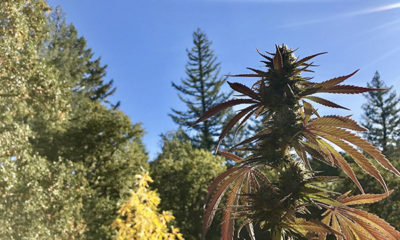
Joint Opinions
Let NFL Players Smoke
Super Bowl XLVIII will go down in history for many reasons: the Seahawks’ first NFL title, Peyton Manning completing more passes than any other quarterback in Super Bowl history and still getting creamed, and Richard Sherman’s nostrils doing their best impression of the Holland Tunnel. However, for many fans, the 48th installment of America’s Game will forever be known as the Smoke-A-Bowl thanks to the two teams’ home states becoming the first two in the country to legalize marijuana for recreational use a few months before the contest.
In a recent Huffington Post/YouGov.org poll about NFL players and consequences for smoking pot, 29 percent of respondents favored a suspension for players for a few games and 28 percent felt that players shouldn’t be punished at all, or only have to pay a fine. Among those who identified themselves as NFL fans, support for cannabis was even higher, with 38 percent saying they felt the punishment should only be a few games and 29 percent favoring fines only.
However, it’s clear that the NFL doesn’t share its fans’ enthusiasm for cannabis. Earlier this year, Cleveland Browns star receiver Josh Gordon tested positive for marijuana, his second violation of the league’s substance abuse policy. His first offense came in 2013 when he tested positive for codeine, which he claimed was from a cough medication he had been taking to treat strep throat. Gordon’s 2014 season is now over before it ever started and, as the suspension is indefinite, possibly putting his career in jeopardy.
To be clear, he knew the rules and the consequences for breaking them, yet went ahead and did it anyway. He should face a suspension, no matter how harsh it seems, for that reason. However, now is the perfect time to re-evaluate the rules that he broke.
Sports have often served as a barometer for social change in America. Jackie Robinson, Tommie Smith and John Carlos, Jim Thorpe, The All-American Girls Professional Baseball League, Roberto Clemente and Danica Patrick have all been pivotal figures in athletics. Sports have the power to strip away prejudice and misconception. Hitler’s racist rhetoric was exposed for the farce that it was by the legs of Jesse Owens and the fists of Joe Louis. Billie Jean King proved a woman’s worth on the court to the world.
Right now is the NFL’s moment. This year has seen the drafting of the first openly gay player, the bungling of the Ray Rice scandal and the subsequent (and highly laudable) strong stance on domestic violence and the continued campaign for the Washington Redskins name change. More than ever, it’s time for football to take a proactive stance on yet another of the defining social issues of our time.
What players choose to do off of the field, unless it hurts others, should be their business. While weed is still illegal in many places, in those where it isn’t, players shouldn’t be prevented from doing what everyone else is allowed to do.
Just like the War on Drugs, the NFL’s substance abuse policy is unevenly implemented and arbitrarily designed and once you’re in the system, you stay in. According to the NFL’s rules, players are tested prior to signing with a team and once a year in April. Players may also be tested if there is a “reasonable basis” for testing. But here’s the thing: the league doesn’t want to catch anyone and neither do the teams. Everyone in Cleveland wants Gordon on the field this year. As a result, the testing standards are designed for teams and players to make an end run around them. The result is a system that, in trying to appear to police something innocuous, ends up failing to police truly harmful substances like PEDs such as amphetamines and steroids.
By far the best argument for the league to change its stance on the use of cannabis is the fact that cannabis is a much safer painkiller than the chemical cocktails NFL teams regularly shoot into their players. In addition to the results of a new study showing the prevalence of prescription drug abuse in the NFL, anecdotal evidence abounds of team doctors handing out Vicodin, Percocet and OxyCodone – all dangerous and addictive substances – like candy on Halloween. The treat: the pills allow players to ignore pain and continue to perform at the highest level; the trick: many players often end up addicted to these drugs well after their playing days are done. However, recent studies have shown that cannabis can be a very effective method for controlling chronic pain and that it is less addictive with fewer adverse effects than opioid painkillers and may even be effective in treating opioid addiction.
Recent years have seen a dramatically-increased awareness of the many dangers that face NFL players: brain damage, drug addiction and financial ruin. If the NFL is truly interested in the long term well-being of the nation’s Sunday gladiators, then no policy — including that regarding cannabis — should be out of bounds.
What are your thoughts in the NFL’s marijuana policy? Tell what you think!






















